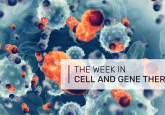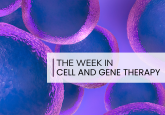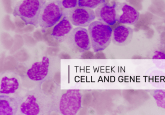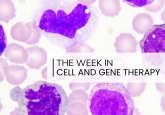Cell therapy weekly: FDA grants further approval for Duchenne muscular dystrophy gene therapy

This week: EG 427 (Paris, France) receives Investigational New Drug (IND) clearance for its neurogenic gene therapy aimed at addressing common diseases in neurology, EpilepsyGTx (Cambridgeshire, UK) raises US$10 million to develop a gene therapy for focal refractory epilepsy. Plus, Sarepta Therapeutics’ (MA, USA) gene therapy for Duchenne muscular dystrophy receives further US Food and Drug Administration (FDA; MD, USA) approval.
The news highlights:
- FDA issues IND clearance for a neurogenic gene therapy
- US$10 million in seed funding raised to develop gene therapy for focal refractory epilepsy
- FDA broadens approval of a gene therapy for Duchenne muscular dystrophy
FDA issues IND clearance for a neurogenic gene therapy
Biotechnology company EG 427 has received IND clearance from the FDA for its gene therapy, EG110, intended to treat neurogenic detrusor overactivity—a bladder dysfunction common in patients with spinal cord injury, multiple sclerosis, Parkinson’s disease and other neurodegenerative diseases.
EG110A utilizes a non-replicating HSV-1 vector that has been devised to target and deactivate specific nerve signals in the bladder that are responsible for causing the bladder muscles to become overactive, without affecting the nerves that control bladder movement and maintain normal bladder function.
This IND approval will allow EG110A to undergo clinical study in a Phase Ib/IIa study in the United States.
“[Neurogenic detrusor overactivity] is a serious bladder condition, for whom treatment options are limited,” expressed Cornelia Haag-Molkenteller, Chief Medical Officer of EG 427. “Preclinical results have shown clear evidence that suggests EG110A could offer significant medical improvement over existing therapies.”
US$10 million in seed funding raised to develop gene therapy for focal refractory epilepsy
EpilepsyGTx, a spinout company based on the research of the UCL Queen Square Institute of Neurology (London, UK), has raised US$10 million in seed funding, which will be used to complete preclinical studies for its lead gene therapy program, EPY201, and prepare for a first-in-human Phase I/IIa clinical study.
EPY201 has been developed to target focal refractory epilepsy, a group of disorders that causes seizures derived from a specific part of the brain. The gene therapy is designed to be administered directly to the area of the brain causing the seizures.
“EpilepsyGTx has an objectively world-leading pipeline of genetic therapies for a common and damaging neurological disorder with few treatment options, developed by a globally renowned clinical, scientific and translational team at the UCL Queen Square Institute of Neurology,” stated Simon Goldman, AlbionVC (London, UK) partner, manager of the UCL Technology Fund and board member of EpilepsyGTx.
FDA broadens approval of a gene therapy for Duchenne muscular dystrophy
Following a prior FDA approval, the FDA has increased the age at which patients with Duchenne muscular dystrophy can receive Sarepta Therapeutics’ ELEVIDYS (delandistrogene moxeparvovec-rokl) from ages four and five to ages four and older. Duchenne muscular dystrophy is an X-linked genetic condition in which dysfunctional copies of the DMD gene result in insufficient levels of dystrophin protein. ELEVIDYS is a one-time-dose, adeno-associated virus vector-based gene transfer therapy that introduces a micro-dystrophin gene into muscle cells to combat the shortage of the dystrophin protein.
The therapy has also been granted traditional approval for ambulatory Duchenne as well as accelerated approval for non-ambulatory Duchenne patients.
Doug Ingram, president and CEO of Sarepta, commented on the significance of the expanded approval, stating:
“Representing many years of dedicated research, development, investment and creative energy, the expansion of the ELEVIDYS label to treat Duchenne patients aged 4 and above, regardless of ambulatory status, is a defining moment for the Duchenne community. Today also stands as a watershed occasion for the promise of gene therapy and a win for science.”





